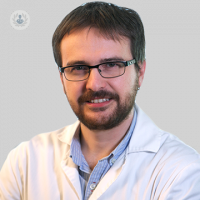Prostate cancer is the third most common cancer in men
Written by:  It is known as prostate cancer that develops in the glandular body to produce sperm. Cancer occurs when some prostate cells mutate and begin to multiply uncontrollably. These cells can also spread to other parts of the body, especially the bones and lymph nodes and metastases originating.
It is known as prostate cancer that develops in the glandular body to produce sperm. Cancer occurs when some prostate cells mutate and begin to multiply uncontrollably. These cells can also spread to other parts of the body, especially the bones and lymph nodes and metastases originating.
Symptoms of prostate cancer
Today prostate cancer is usually detected at an early stage, so that the patient does not yet show symptoms. Symptoms that may occur are pain, difficult urination and erectile dysfunction, among others.
The age of onset is most common in men over 50 years. Prostate cancer is the third most common cancer in men and in Spain, about 6,000 people die each year from it.
Prostate cancer risk factors
- being African American
- live in countries of northwestern Europe
- SD Lynch present or having a mutation BRCA1 or BRCA2 dl
- have a first-degree relative suffering from prostate cancer
Early detection of prostate cancer
Early detection of prostate cancer is carried out mainly by blood test for prostate-specific antigen, called PSA (prostate-specific antigen) and DRE. If the results are altered, a prostate biopsy is performed.
Furthermore, the Nuclear Magnetic Resonance Multiparameter Prostatic is a technique increasingly used in the diagnosis and monitoring of prostate cancer.
The survival of prostate cancer in Spain is equal to the European average. Approximately 65.5% of patients with prostate cancer in our country survive more than five years.
Management of prostate cancer
Prostate cancer is treated by radical surgery or radiation therapy in cases where the tumor is localized and the patient has a higher life expectancy at age 10. To decide what is the best treatment specialist Urology is based on:
- Stage of disease
- Aggressiveness of cancer cells (addition or "score" Gleason)
- PSA levels at diagnosis
- Age and independent statistical life expectancy of prostate cancer
- Patient preferences
If the tumor is widespread treatment should be done is a hormonal treatment in order to slow the growth of the tumor and if it does not answer, you can perform a treatment with chemotherapy or second line hormonal treatment.


